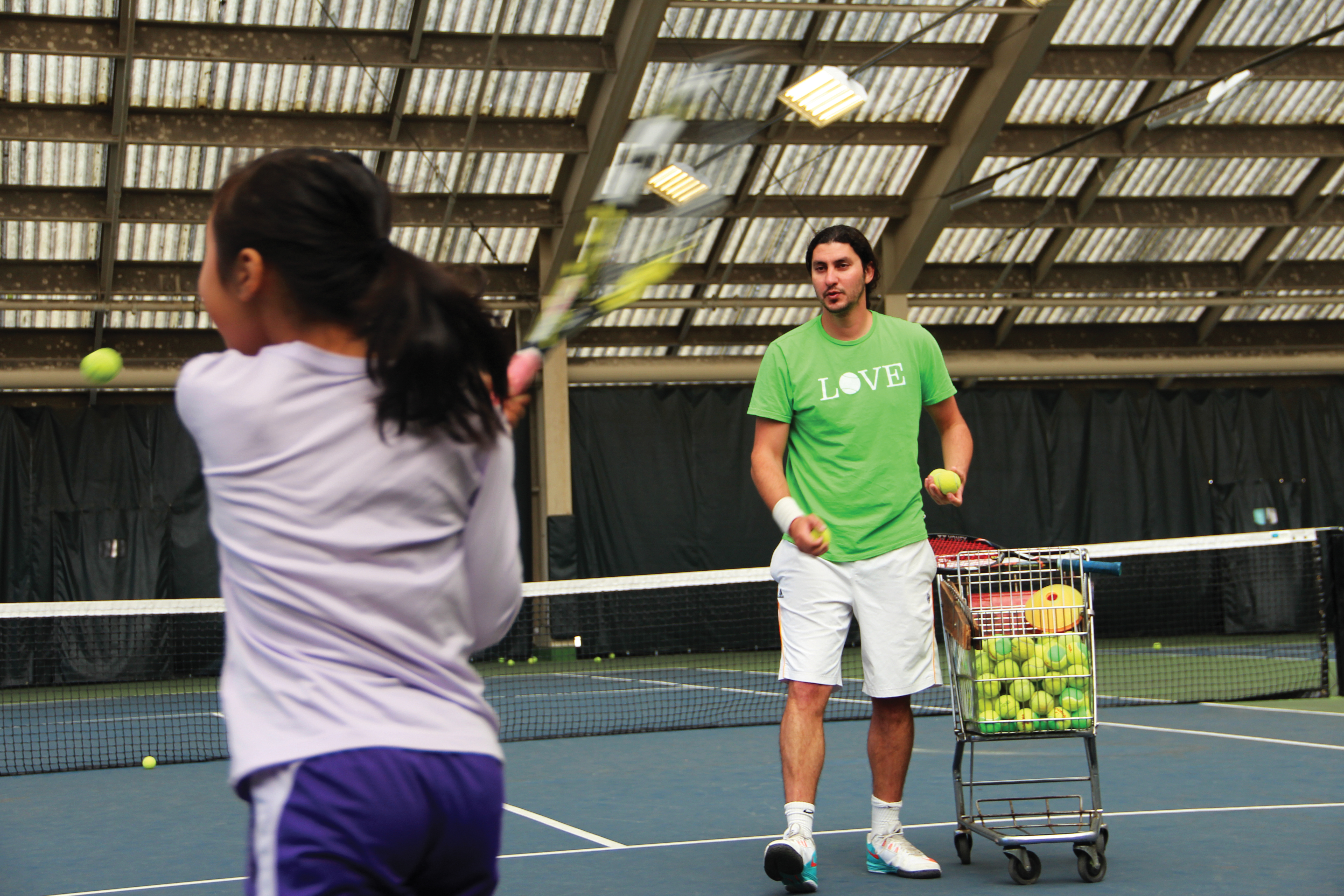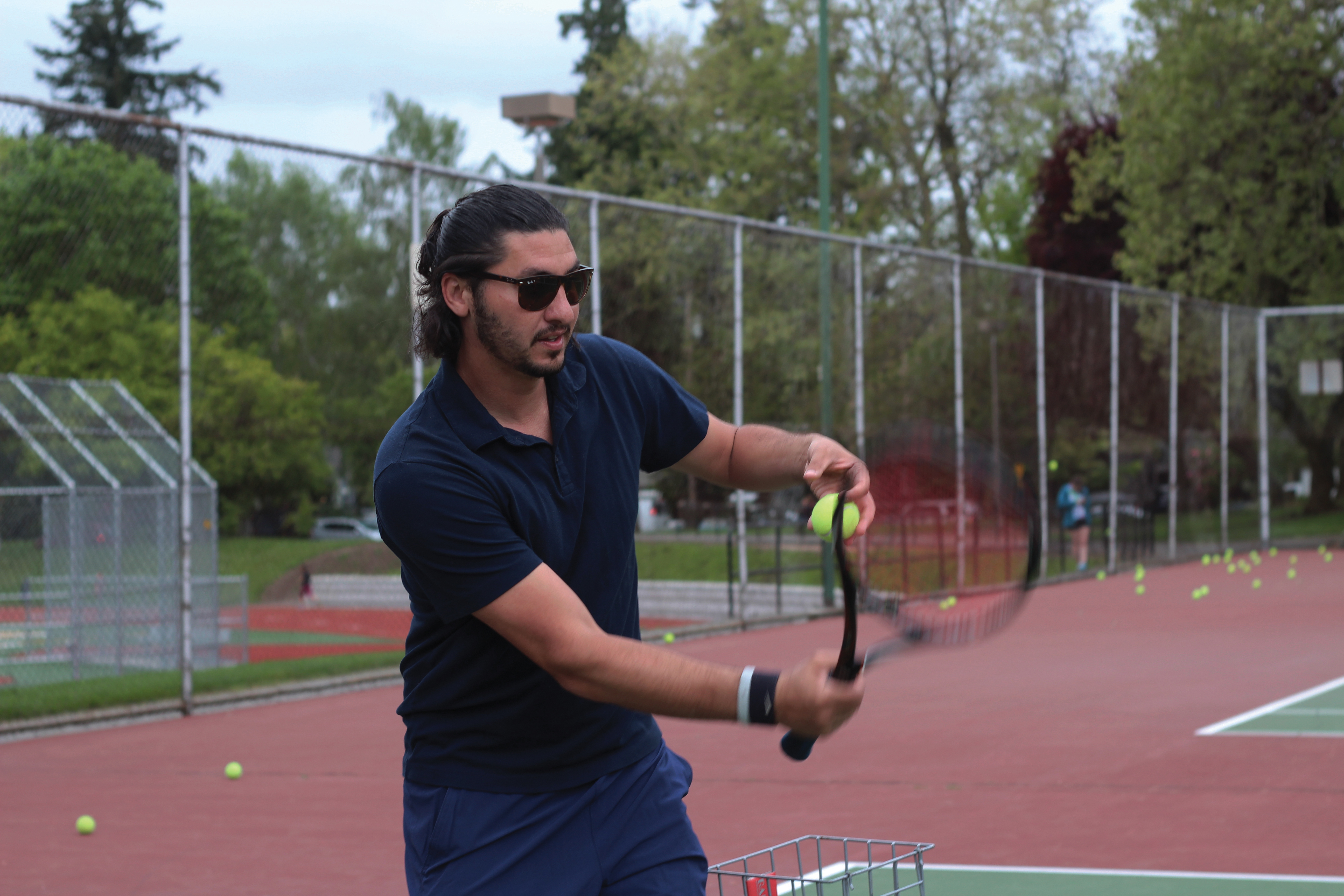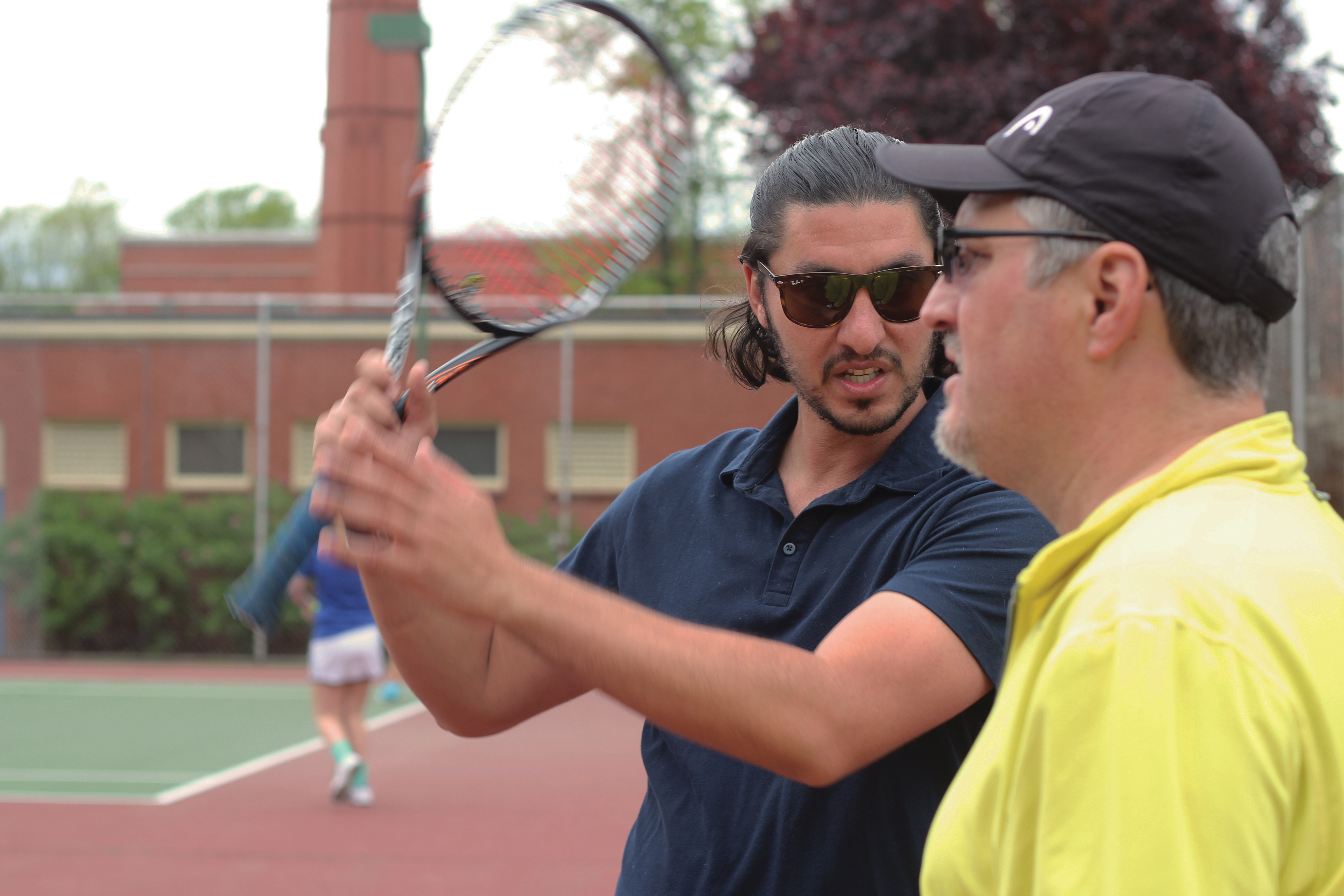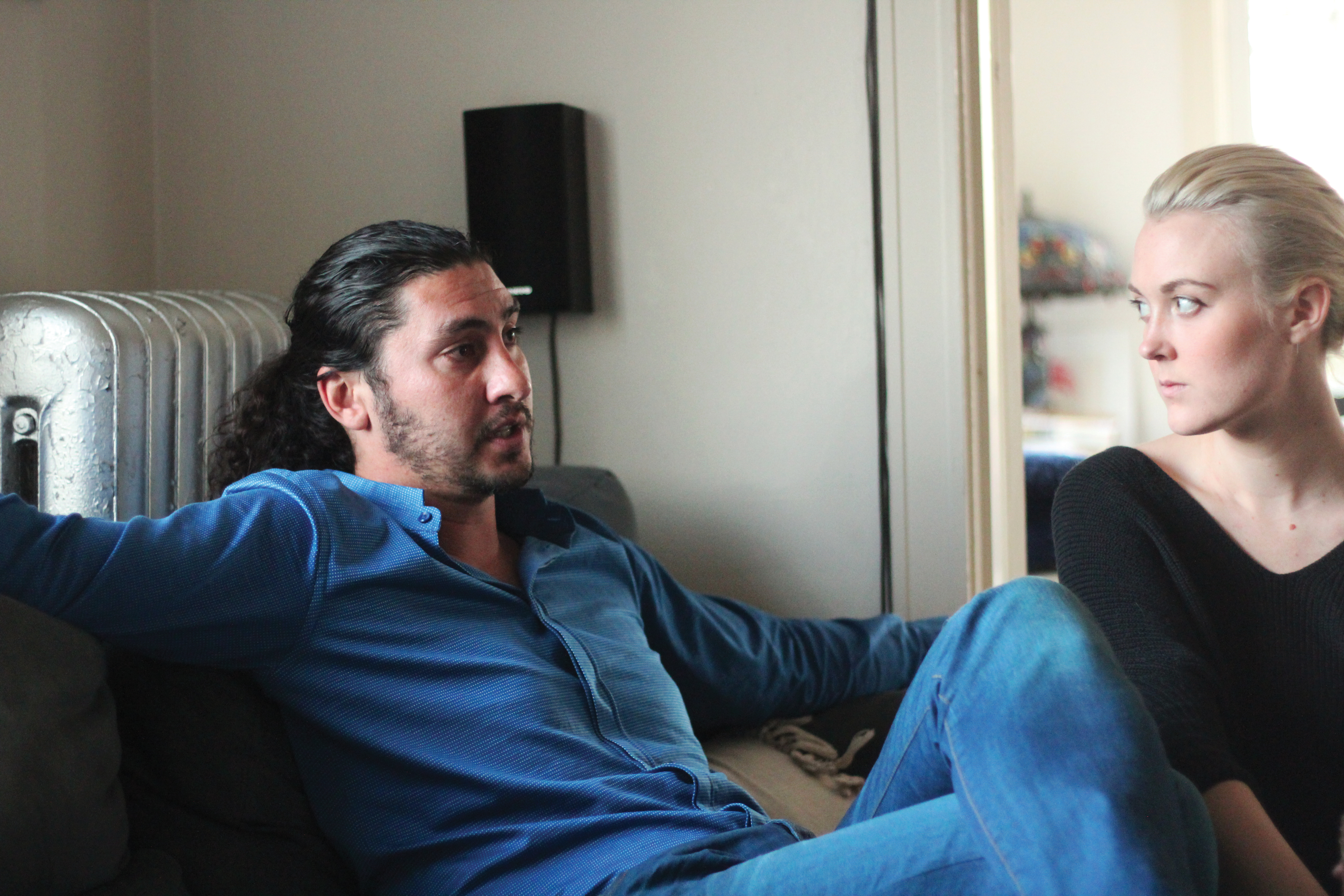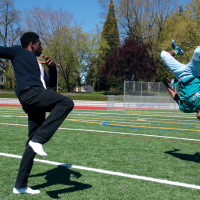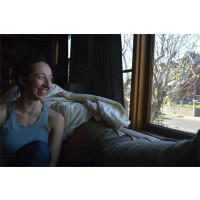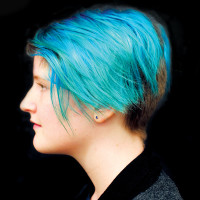On a hot and humid June afternoon, an 18-year-old Farhad Roshanaie is drenched in sweat and rain. He’s at the highest point of Tehran, Iran, an altitude of nearly 7,000 feet, where the tennis courts are made of red clay and the balls bounce much faster.
It’s 2001. Roshanaie is playing in the last match of his youth career, and he’s facing the second best 18-year-old in the country. His opponent, a longtime rival, takes the first set, but Roshanaie is calm, a clear testament to his No. 1 ranking and over a decade of dedication to the sport. After a short rain delay, he returns to the court and slams a serve past his opponent. It sets the tone for the rest of the match. Roshanaie wins in convincing fashion.
“You always remember the matches against your most heated competitors,” he says now. “And this was different for us both as the last official competition we would probably play.”
Now 32, Roshanaie lives on the other side of the globe and his days as a tennis star are over. Roshanaie was at the top of his game back then, a teenager who held the No. 1 ranking in his country for six years and competed internationally. He abandoned tennis as a career shortly after turning 21 and spent most of his early adult life searching for another career.
Starting on the open courts of Seattle – offering his assistance as a freelance coach to being voted Coach of the Year in the Northwest Division – Roshanaie has made his way to Portland as Grant’s women’s tennis coach. Though he left pursuing a professional career behind, he takes his passion for tennis and pours it into teaching.
“Farhad is a lot more intense, a lot more passionate than past coaches,” says Brian Samore, Grant’s Athletic Director. “He’s a guy who really cares and all the kids love him.”
Roshanaie was born in Tehran on June 9, 1982, the youngest of four. At the time, the city, which lies in northwestern Iran, was facing severe political turmoil. Protests and nearby bombings were common. The Iran-Iraq War, a war waged for land gains by Iraq’s dictator Saddam Hussein, had just begun.
Roshanaie thinks back on his childhood often, especially with the contrast in freedoms that are apparent in the U.S. “You can see and criticize Barack Obama and nobody cares about that,” says Roshanaie. “In Iran, it’s not like that. You can get in trouble. People are free. People can do whatever they want to here.”
Born just after the revolution, Roshanaie had little notion of what life was like before the change in government. Pardis Navi, a long time math teacher at Grant, grew up in pre-revolution Iran.
“After the revolution, things got much more strict,” she remembers. “Societal relationships changed. (Women) could only be in public with a male family member,” says Navi. “It changed the dynamic for many families. As the little brother, you were the protector of your older sister.”
Roshanaie recalls times as a young child experiencing electricity blackouts and constantly hiding under door wells at the alarm of sirens. “It was always at night,” he says. “I was very young – not even in elementary school yet. I just remember hiding and hearing planes flying over, not knowing what was going on.”
His older brother by nine years, Babak Roshanaie, remembers the times all too well.
“When you grow up in war time, life is war,” he says. “You have no concept of dying or what regular life is like. The first night after they called ceasefire, I went to bed not worrying about bombs for the first time in my life. I had such a reassurance of safety that I cried in my bed.”
Babak, who now works as a psychiatrist, also reminisces on the happier times of his childhood. “Even though there was war, life was still going on,” he says. “We still went to school. We still played tennis.”
Farhad Roshanaie grew up going to an athletic club just 10 minutes from his house. “I would just watch my father play tennis at the club, and when I was about 7 or 8, I started hitting, too,” says Roshanaie. “There wasn’t one day that I picked up tennis. It was more of a transition…I’ve just grown up with the sport.”
His father, a pharmacist, was never a professional tennis player, but had a strong passion for the game. Roshanaie remembers him leaving five days a week to go play before he joined him.
In the summer, Roshanaie and his friends would spend seven to eight hours a day playing tennis. When it got too hot, they would take a break and jump in the pool. “It was the only thing I did with my free time,” he says.
Though tennis was an outlet, it also gave him the chance to spend time with his father. When he had a class that he didn’t like, it wasn’t uncommon for him to skip school and play tennis with his dad.
Babak Roshanaie, who also played tennis recreationally, can relate. “It seemed that war had really affected my father psychologically,” he says. “He wasn’t available for his children mentally. Playing tennis was one of those few moments that we could share together and we could be happy.”
“Even though there was war, life was still going on,” he says. “We still went to school. We still played tennis.” – Babak Roshanaie
As Farhad Roshanaie turned 12, his competitive tennis life took off and he quickly earned his top ranking in Iran. “It was a good feeling,” he says. “You want to always be the best or one of the best in whatever you want to do.”
His competition got much more intense when he turned 19 and he made the leap into the men’s open division, an adult amateur tennis league. “In under 18s, there’s a lot of great players, but they are all under 18,” he explains. “In men’s open, there is no age limit. I played for a few years and wasn’t that happy with my improvement.”
That lack of development, says Roshanaie, was due to his location. Contrary to European countries or the United States, Iran did not possess the elite coaching or programs that help develop younger players and push them to the next level. His coach in Iran, he says, was one of the best in his country, but he had “reached his limits with me.”
This led to a stark realization. “When I was about 21, I realized that I wasn’t going to be one of the top players in the world rankings, so I said I needed to go to a university and continue my education,” says Roshanaie. “I was kind of mentally done with tennis.”
Roshanaie, who had been studying German for the past three years, went to Germany, taking advantage of the free schooling offered to any person fluent in the language. He quickly picked a university in the small town of Ilmenau, in the central eastern state of Thuringia. With just over 25,000 residents, it was a significant change from the big city life of Tehran.
When he arrived at the Ilmenau University of Technology, Roshanaie didn’t know what he wanted to study, so he went for what he knew. “My whole family was in medicine,” he says. “My father was a doctor, my brother a psychiatrist…I felt kind of forced into biomedical engineering. I knew my father would love it.”
Roshanaie also discovered a wildly different way of life than in Tehran. He says the new level of freedom was the hardest thing to get used to. “In Iran, women have hijabs, our schools are separated, girls (and) guys go to different (schools). Seeing people with that much freedom…it shocked me.”
At first, he had trouble adjusting to the “introverted lifestyle” of the German people. Living on campus, Roshanaie had a surprising first encounter with his roommate. “The first time I said hello, he didn’t respond to me,” says Roshanaie. “It took about five to six months until he would respond.”
“People in Germany are very introverted,” says Roshanaie. “In Iran, we are very friendly. I was confused. I was like, ‘Why? What is going on? People don’t talk to each other. Is something wrong with me or with them?’ It took me a while to learn that it was a cultural thing. It didn’t mean that guy hated me.”
As Roshanaie reached his fifth year, he realized that his true path lay elsewhere. “I didn’t have that passion for engineering that my brother had for medicine,” says Roshanaie. “I had just gotten a degree in a field that I didn’t want to pursue.”
After speaking with his brother, who had been living in Seattle for the past six years, Roshanaie decided he wanted to come to the U.S. “I was very curious about what it was like living in the states,” says Roshanaie. “(My brother) seemed very happy. I wasn’t happy in Germany.”
Once in Seattle, Roshanaie came to a realization. “I came to America not really knowing what I was getting myself into,” he says. “I didn’t know what I wanted to do.”
As a side gig, Roshanaie began coaching, giving recreational tennis lessons to anyone that was interested. Along the way, he caught the eye of a companion.
Roshanaie met his current girlfriend, Krissy Harbert, in the summer of 2013. After their first date, Roshanaie met her at his favorite tennis court in the city.
“It’s a beautiful tennis court that overlooks the water with the Cascades in the background and it’s one of the most picturesque places to play tennis,” says Harbert. “We played tennis as a getting to know each other activity. It’s fun, it’s informal, it’s outside, the sun is shining.”
Since Roshanaie taught lessons at the court, Harbert would meet him weekly to play. They dated for a year before moving in together.
Together, they brainstormed possible pursuits for Roshanaie. The obvious answer was tennis coach. “It’s so funny that it took us so long to figure out what was right in front of our faces,” says Harbert. “He had loved tennis all his life. I don’t know why we didn’t think of it sooner.”
The first reliable coaching job he landed was at Mountlake Terrace High School, just outside of Seattle. After a year there, his career began to pick up momentum.
When Harbert got a job in Portland, the two sustained a long-distance relationship for a few months before her co-worker mentioned that Reed College needed a head coach for their summer tennis program. Harbert thought Roshanaie would be perfect for the job.
“It was nice to have the position of head coach,” says Roshanaie. “It was my first time not being an assistant.” After coming down for the summer of 2013, he moved in with Harbert and later landed an assistant coaching job with Portland State University’s Division I women’s tennis team.
“It was a very big deal for me to be working at a Division I college,” he says. “I felt like, ‘OK, I am really doing something now.’”
When Roshanaie started as an assistant coach, the team had never made it to the NCAA tournament. By the end of the season, they reached the semifinals.
Roshanaie got his break at Grant after a last-minute cancellation sent Samore, Grant’s athletic director, into a frenzy. “Our coach from last year said she couldn’t do it, so I was scrambling,” Samore recalls. “I contacted every person I knew that was involved in the tennis world. He was the strongest candidate.”
Becky Chasse, a volunteer tennis instructor for the girls’ team this year, offered her help after she heard the team needed some assistance. Chasse works every practice with Roshanaie. “Farhad’s a really, really great player, but he’s not conceited,” she says. “He doesn’t go around acting like he’s better. He has a very high level of integrity.”
Harbert says his integrity comes from his passion for his students. “The difference between Farhad and other coaches is that he really cares about the individuals’ improvement,” she says. “Some coaches just want to win, but he’d rather see his students fall in love with the sport…Farhad would rather create a lifelong tennis player than a winner.”
Paige Nelson, a freshman on the varsity girls’ tennis team, agrees. “He’s very serious about tennis and passionate for the game,” she says. “He’s really intent on making the Grant women’s team a really great team. He just wants everyone to come play.”
Says Ellie Corser, a junior on the team: “He’s qualified to teach pros and has been coaching really high-level players for a long time. He wants the best for us. He really wants us to succeed.”
With a team of 40 young women ready to compete, Roshanaie hopes to do just that for as many of his students as he can. As a coach, he holds his players as a high priority. “Athletes must be first before winning,” says Roshanaie. “I would love to help them become more passionate about tennis.”
Although he remembers thinking his tennis career was finished when he couldn’t make it to the professional level as player, he’s found that he doesn’t need his own competition to continue with his passion. Now, his only goal is to instill a love for the game into as many young players as he can.
“It’s a big success for me if I can see that they love it, when I see that I have their attention,” says Roshanaie. “It means they are caring about their time, that they chose to be here. That is one of my goals – to make sure they have tennis their whole lives.” ◊

